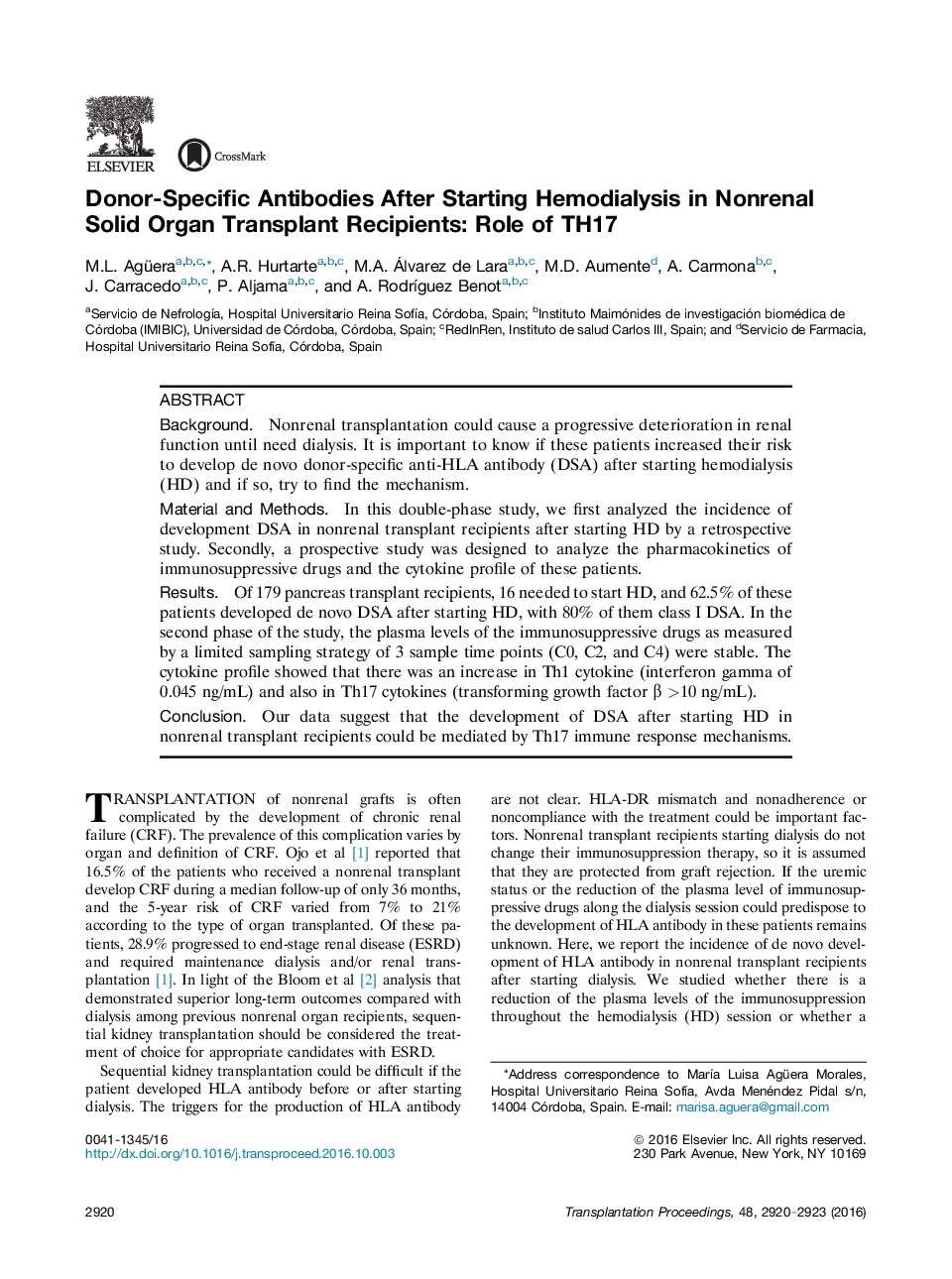| Article ID | Journal | Published Year | Pages | File Type |
|---|---|---|---|---|
| 5728993 | Transplantation Proceedings | 2016 | 4 Pages |
â¢Nonrenal transplantation patients developed de novo DSA after starting hemodialysis.â¢Immunosuppressive plasma levels remain stable during the dialysis session.â¢Th17 and Th1 cytokines are increased in nonrenal transplantation patients on hemodialysis.â¢Th17 cytokines could be associated with the development of de novo DSA of these patients.
BackgroundNonrenal transplantation could cause a progressive deterioration in renal function until need dialysis. It is important to know if these patients increased their risk to develop de novo donor-specific anti-HLA antibody (DSA) after starting hemodialysis (HD) and if so, try to find the mechanism.Material and MethodsIn this double-phase study, we first analyzed the incidence of development DSA in nonrenal transplant recipients after starting HD by a retrospective study. Secondly, a prospective study was designed to analyze the pharmacokinetics of immunosuppressive drugs and the cytokine profile of these patients.ResultsOf 179 pancreas transplant recipients, 16 needed to start HD, and 62.5% of these patients developed de novo DSA after starting HD, with 80% of them class I DSA. In the second phase of the study, the plasma levels of the immunosuppressive drugs as measured by a limited sampling strategy of 3 sample time points (C0, C2, and C4) were stable. The cytokine profile showed that there was an increase in Th1 cytokine (interferon gamma of 0.045 ng/mL) and also in Th17 cytokines (transforming growth factor β >10 ng/mL).ConclusionOur data suggest that the development of DSA after starting HD in nonrenal transplant recipients could be mediated by Th17 immune response mechanisms.
